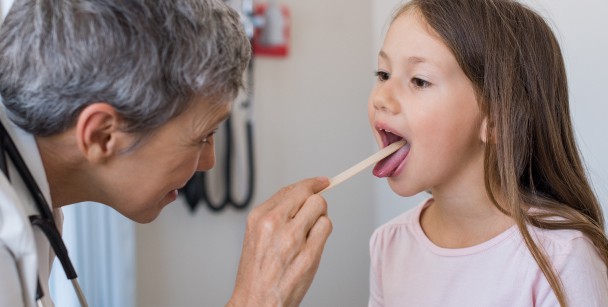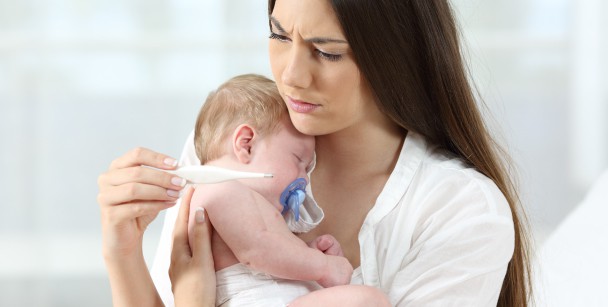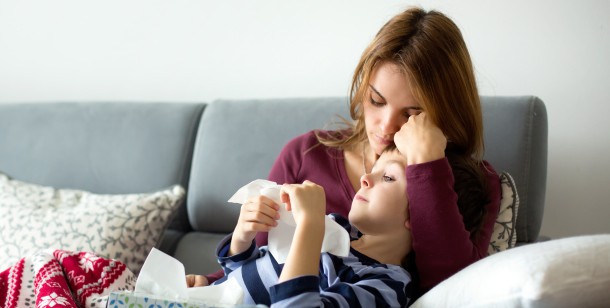
When we first have a baby, that child is an endless source of joy and love, but they always come with something else: limitless reasons to worry. As parents, we’re hypersensitive to every cough, every sneeze, every cry, fretting over whether or not it’s completely normal or something worth going to the emergency room over. So when should you know to take your child to the ER for a fever?
Well, new parents will likely find themselves heading to the nearest medical center just to be safe. And in some cases, that may well be the best course of action. However, such drastic measures are not always necessary, so let’s take a look at some recognizable signs and symptoms and what the appropriate responses are for each when considering taking your child to the ER for a fever.
When Should I Take My Baby to the Hospital?
Babies get sick. It’s unfortunate and nerve-wracking, but it’s also a perfectly normal part of their development, and their immune systems will often take care of them. There are plenty of signs that you may want to call your pediatrician but don’t necessarily warrant emergency medical attention. Such signs include:
- Diarrhea and vomiting
- Changes in behavior or appetite
- Rashes
- Discharge from the eyes
- Constipation
- Mild fevers
- Sore throat
- Tender umbilical area or genitals
These symptoms should not be taken too lightly, but they may be something you’re able to treat at home with rest, fluids, and/or easily obtained over-the-counter medications.
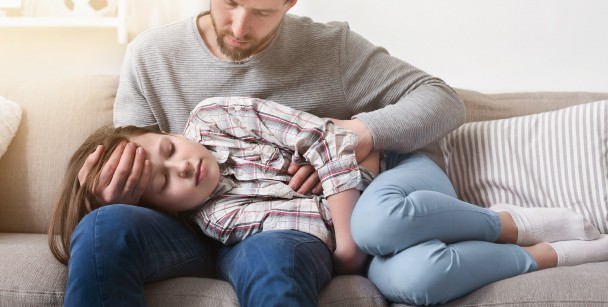
However, there are also several things to look out for which may warrant taking your child to the ER for a fever. If your child is experiencing any sign or symptom below, seek emergency care immediately:
- Becoming less and less responsive to stimuli
- Loss of consciousness
- Bleeding that won’t stop
- Deep cuts
- Burns
- Smoke inhalation
- Discoloration in the lips (blue, purple, or gray)
- Persistent high fever
- High fever paired with other symptoms
- Seizures
- Consistent vomiting after hurting their head
- Possible poisoning or near-drowning.
Do not take any symptoms lightly, especially those listed above. When dealing with an infant or other individuals who is unable to communicate how they’re feeling with words, it’s important to take every small detail into account and be attentive to changes in behavior.
At What Temperature Should My Baby Be Taken to the Hospital?
Generally speaking, medical attention is recommended depending on the age and temperature of the child. If your child has a fever and is:
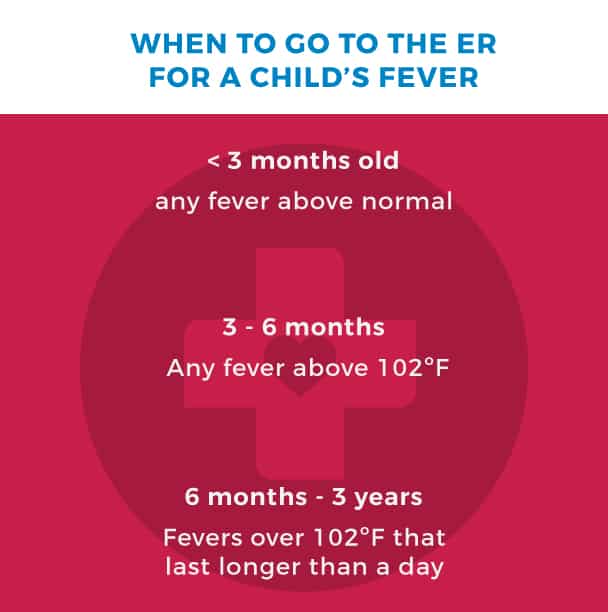
- Less than 3 months old – Take your baby to the hospital for any fever above normal.
- Between 3 and 6 months – Any fever above 102F is worth contacting your pediatrician. Any fever up to 102F that is paired with other symptoms should also warrant a conversation with the baby’s doctor.
- Between 6 months and 3 years – Fevers over 102F that last longer than a day but are not paired with other symptoms are worth contacting your pediatrician. If the fever comes with other symptoms, seek medical attention sooner.
When Should I Be Concerned About My Baby’s Fever?
Fevers are not necessarily a bad thing by themselves. They’re part of the body’s alarm system, letting you know that something may be wrong while attacking whatever bacteria, virus, or other negative stimulus is causing the issue. The fact that your baby has a fever at all is indicative that their immune system is working properly.
There are also other factors that could influence your child’s temperature, such as how warmly they’re dressed, if they’ve been especially active, or if they’ve recently had an immunization. In these cases, the fever is not usually something to be concerned about, but should still be addressed as needed. For example, if the child is overdressed, take off a layer or two of clothing. If they’ve been overly active, just let them rest and check them again later. Fever after immunization is also a completely normal and harmless reaction, but keep an eye on the child to ensure that nothing escalates.
That being said, any fever should always be closely monitored. You never want to assume that a fever is nothing serious and accidentally wind up missing other signs and symptoms that point to something more urgent. Monitor your child closely, making note of any changes to their behavior, habits, appetite, and physical health. If any of their symptoms match those listed in the first section, it’s always better to seek medical attention just in case.
If emergency assistance is required, do not hesitate to take your child for a fever to the nearest Village Emergency Center. With four convenient locations, we provide a wide array of pediatric emergency services when you need it most. And with no wait times, Village Emergency Centers is dedicated to providing prompt and professional care at a moment’s notice.

